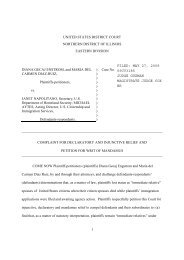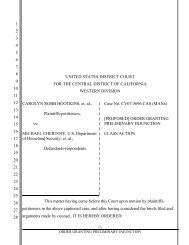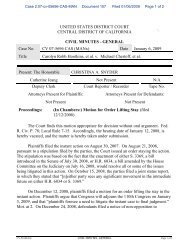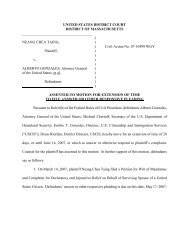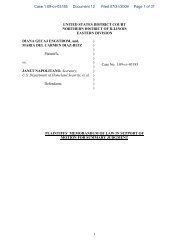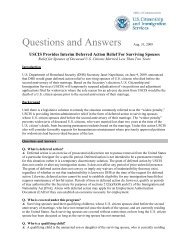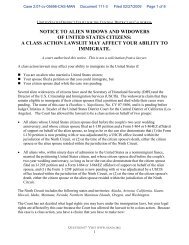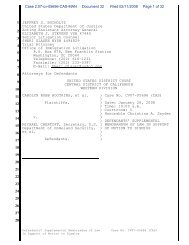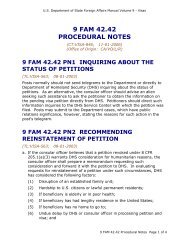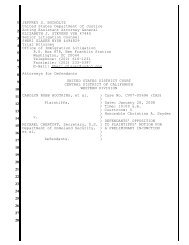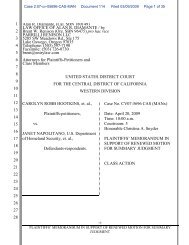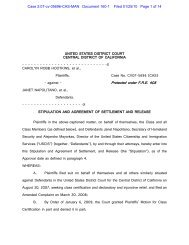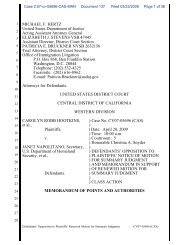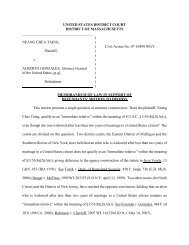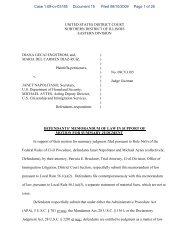Robledo Response to Motion to Dismiss - Surviving Spouses ...
Robledo Response to Motion to Dismiss - Surviving Spouses ...
Robledo Response to Motion to Dismiss - Surviving Spouses ...
You also want an ePaper? Increase the reach of your titles
YUMPU automatically turns print PDFs into web optimized ePapers that Google loves.
C. Subsequent Legislation Is Not Dispositive<br />
Defendants cite subsequent proposed legislation as evidence USCIS is currently<br />
interpreting 8 U.S.C. § 1151(b)(2)(A)(ii) correctly. Those bills, H.R. 6034 and S. 3369, H.R.<br />
6938 and S. 3514, introduced during the 110th Congress, were never voted on by the Congress<br />
nor sent <strong>to</strong> the President for signature. Indeed, no bill other than H.R. 6034 ever made it out of<br />
committee. The Supreme Court has admonished that “[f]ailed legislative proposals are a<br />
particularly dangerous ground on which <strong>to</strong> rest a prior interpretation of a prior statute.” Solid<br />
Waste Mgmt. Agency of N. Cook County v. United States Army Corps of Eng’rs, 531 U.S. 159,<br />
169-170 (2001). Reliance on any part of that draft legislation, including the committee report,<br />
would be improper. Cf. e.g., In re Atamian, 247 Fed. Appx. 373 (3d Cir. 2007) (misplaced<br />
reliance on proposed legislation); Mobile Commc’ns Corp. v. FCC, 77 F.3d 1399, 1413 (D.C.<br />
Cir. 1996) (agency could not rely on “proposed but unenacted legislation as authority”); In re<br />
Garfinkels, Inc., 203 B.R. 814, 820 (Bankr. D.D.C. 1996) (court concerned about “dubious<br />
nature of relying on unenacted proposed legislation”).<br />
Furthermore, recent legislation ameliorating the effects of the death of a family member<br />
for 9/11 victims and military members do not support Defendants’ claims that Congress intended<br />
<strong>to</strong> strip “immediate relative” status from an applicant who has complied with all the statu<strong>to</strong>ry<br />
prerequisites for lawful permanent residence. Defendants cite <strong>to</strong> the USA Patriot Act of 2001,<br />
Pub. L. No. 107-56, 115 Stat. 272, 356 §§ 421(a), (b)(1)(B)(i) (2001) and the National Defense<br />
Authorization Act for Fiscal Year 2004, Pub. L. 108-136, 117 Stat. 1693, § 1703(a) – (e) (2003)<br />
<strong>to</strong> evidence Congress’ intent. MTD at page 31 n.11. Neither Act amends the INA. Moreover,<br />
- 30 -



